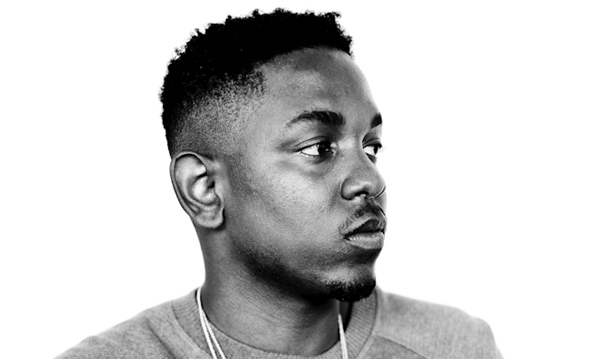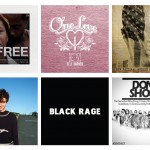Rapper Azealia Banks has announced she is giving up Twitter for Lent , and her online feuds likely had more than a little influence on Iggy Azalea and Lupe Fiasco spurning the social media platform as well.
Like Kanye West before her, the “ 212 “ rapper is also beginning to gain a reputation as a “ranter” (a term like “crazy” that is usually dismissive), despite the fact that she normally says some pretty real shit.
She has been very outspoken about racial politics and the issues surrounding cultural appropriation (issues that are inextricably linked to her beef with Iggy Azalea), and was even moved to tears when discussing them in an interview with Hot 97 in December.
Her best online spat before her hiatus was with Lupe Fiasco regarding Kendrick Lamar ’s comments on Ferguson.
In a January interview with Billboard, Lamar stated , “I wish somebody would look in our neighborhood knowing that it’s already a situation, mentally, where it’s fucked up. What happened to [Michael Brown] should’ve never happened. Never. But when we don’t have respect for ourselves, how do we expect them to respect us? It starts from within. Don’t start with just a rally, don’t start from looting – it starts from within. ”
Banks responded on Twitter by calling it the “dumbest shit I’ve ever heard a black man say,” prompting Lupe Fiasco to jump in to Lamar’s defense.

Now I like Lupe and I like Kendrick, but they are wrong here. Which brings us to the first installment of what unfortunately will probably be a regularly occurring series: “Respectability Politics Are Bullshit.”
Respectability politics are basically a set of philosophies for black liberation based on the old adage that black people have to be twice as good to get half as much .
And rather than challenging this unfortunate social reality, they double down on it by insisting that if black people “respect themselves” and are twice as good all the time, then white people will be forced to respect them.
RELATED: ‘American Denial’ Examines Roots of Racial Bias on PBS
Now, that might be good personal advice for navigating a system of criminalization and oppression, but it will not necessarily protect you.
More importantly, it does nothing to actually stop those oppressive systems, instead allowing them to be replicated from generation to generation.
America has a long tradition of telling black people what they should be doing to alleviate their oppression.
During slavery, white slave owners used Christianity to tell black people to obey their masters and wait for their salvation in heaven (while of course the slave owners themselves enjoyed their heaven on earth at black people’s expense).
Today, everyone from Bill O’Reilly to Bill Cosby has lectured black people about how their own collective actions are holding the community back.
Even Kendrick Lamar in the last line of his latest single “The Blacker the Berry” implies hypocrisy in the black community for mourning the death of Trayvon Martin without first acknowledging the prevalence of black-on-black crime.
In reality, as long as structural racism and deeply entrenched inequality are not addressed, it doesn’t matter what black people do; nothing will change.
In reality, black people have already done a lot to address the criticism against them. The most oft-cited areas for needed improvement in the black community are crime, out-of-wedlock births, and absent fathers.
Much noise has been made about the fact that 90% of black murder victims are killed by other blacks, but whites kill each other at nearly the same rate (83%), rendering the statistic more-or-less useless (it should, after all, come as little surprise that most murders are intra-communal).
Actual violent crime committed by blacks has decreased by 45% since 1978. Since 1970, the unwed birthrate for black women has declined by a third, with a 50% decrease among teenagers .
And a recent study by the CDC found that, despite being less likely to live with their children (probably due in part to the disproportionate incarceration rate for black men), black fathers were actually more involved in their children’s lives on a daily basis than fathers from any other racial group.
RELATED: Dream Defenders’ Phil Agnew Discusses Systematic Bias on PBS ‘After Ferguson’
It seems as though black people are doing exactly what their critics have asked of them, yet this has done nothing to curb the rhetoric or to prevent black people from being killed in the streets.
Shortly after the shooting of Trayvon Martin in Florida, Geraldo Rivera said that the hoodie he was wearing that night was just as responsible for Martin’s death as George Zimmerman, as though it was the innocuous article of clothing, and not Martin’s blackness, that caused Zimmerman to treat him like a criminal.
If only black people would act more respectable, then we wouldn’t have to murder them! Wyatt Cenac had an excellent piece on the Daily Show (linked below) pointing out the truth: it’s not the clothes that white people find intimidating; it’s who’s wearing them.
Black people will always be demonized – described as giant ferocious demons or far older than their actual age – not because of their garb but because of their skin.
But the biggest problem with the politics of respectability is that it requires black people to prove they are worth their humanity.
It sets an impossibly high standard by necessitating that black people be superhuman at all times.
It creates a double standard that allows white people to be judged as simply human, but does not grant black people that same luxury.
This is why there can never be the perfect victim of racial violence in this country. Meanwhile white suspects are treated better by law enforcement and more favorably in the media than black victims .
And maybe it is just the result of being in the statistical majority, but white people’s actions are not treated as representative of their entire race.
We grant white people much more individuality and much more complexity. They can still be good kids that made dumb mistakes. They are allowed to be human.
The white fraternity brothers who destroyed multiple hotels in Michigan did not make us all look bad.
We do not look at whites’ increased likelihood of committing mass-murder or overdosing on heroin as some grand racial or cultural deficiency.
We do not have pundits on national television citing these as evidence of crisis in the white community or pontificating about the scourge of white-on-white crime.
At the end of the day, it is not black people’s behavior that got them into this mess and it alone cannot get them out of it either.
All the respectability in the world didn’t prevent Martin Luther King, Jr. from getting “shot in the fucking face anyway.”
An additional 1.7 seconds of respectability would not have saved Tamir Rice from execution at the hands of the Cleveland police, nor would it have stopped them from blaming him for his death .
And that’s most of what the respectability politics argument boils down to: blaming black people for the results of 400 years (and counting) of systematic oppression and exploitation.

All in all, it’s the type of thing you might expect to hear from white people, but when it comes out of the mouths of black folks it is especially distressing.
It is a line of thinking that accepts the terms of a white supremacist argument and is symptomatic of internalized self-hatred. And Kendrick, Lupe, that’s why y’all are wrong on this one.
There’s nothing wrong with wanting better for your community, for speaking out against gang violence, or for wishing rappers with more positive messages got more attention.
What is wrong is suggesting that any of those things are what is really holding black people back.
That view is ignorant of both the past and the present, and is probably more harmful to the black community than any trap music could possibly be.
There’s something to be said for a little inward looking and self-reflection, but don’t do it at the expense of looking around you.
We need to turn our attention to asserting the humanity of all people and challenging the oppressive systems that deny them of that.
That is what Azealia Banks is talking about. That is what all the post-Ferguson protesting has been about. Perhaps you should join in.
Republished with permission from Bradley Cox and LovelessSociety.com .
Author









